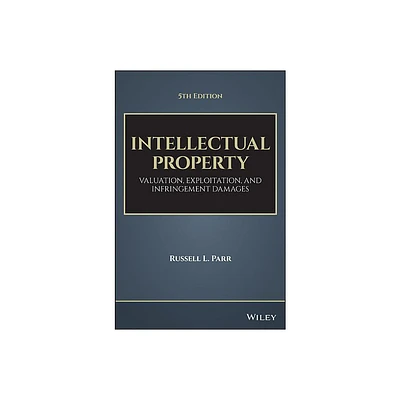Home
The Economics of Intellectual Property and Openness: Tragedy Intangible Abundance
Loading Inventory...
Barnes and Noble
The Economics of Intellectual Property and Openness: Tragedy Intangible Abundance
Current price: $66.99


Barnes and Noble
The Economics of Intellectual Property and Openness: Tragedy Intangible Abundance
Current price: $66.99
Loading Inventory...
Size: Hardcover
*Product Information may vary - to confirm product availability, pricing, and additional information please contact Barnes and Noble
This book focuses on the economic aspects of intellectual property (IP). It includes considerations of the wider category of intangible assets. However, the primary focus is devoted to patents which the author argues are the most vivid example of the Tragedy of Intangible Abundance (TIA).
TIA touches upon a key issue in the contemporary economy. On the one hand, there is an enormous supply of IP, yet, on the other hand, such an abundance does not necessarily solve existing issues but rather creates new ones as well. This book elaborates on the reasons for the emergence of TIA and its consequences. The author uses clear metaphors to explain very complex issues. The book provides a valuable and interdisciplinary analysis of the field and offers practical solutions. It is based on the data collected by the author during the qualitative research he conducted among a group of start-ups. It presents guidance on determining which instrument is the most efficient for a particular situation. It also provides arguments for decision-makers and their advisors as to why a more open approach towards intellectual property would be more beneficial under many circumstances in the contemporary economy. While universal issues are addressed, the author distinguishes the European perspective too.
The book is written in a clear and concise style and covers all of the crucial aspects of IP management. It will find an audience among scholars of economics and business.
TIA touches upon a key issue in the contemporary economy. On the one hand, there is an enormous supply of IP, yet, on the other hand, such an abundance does not necessarily solve existing issues but rather creates new ones as well. This book elaborates on the reasons for the emergence of TIA and its consequences. The author uses clear metaphors to explain very complex issues. The book provides a valuable and interdisciplinary analysis of the field and offers practical solutions. It is based on the data collected by the author during the qualitative research he conducted among a group of start-ups. It presents guidance on determining which instrument is the most efficient for a particular situation. It also provides arguments for decision-makers and their advisors as to why a more open approach towards intellectual property would be more beneficial under many circumstances in the contemporary economy. While universal issues are addressed, the author distinguishes the European perspective too.
The book is written in a clear and concise style and covers all of the crucial aspects of IP management. It will find an audience among scholars of economics and business.


















